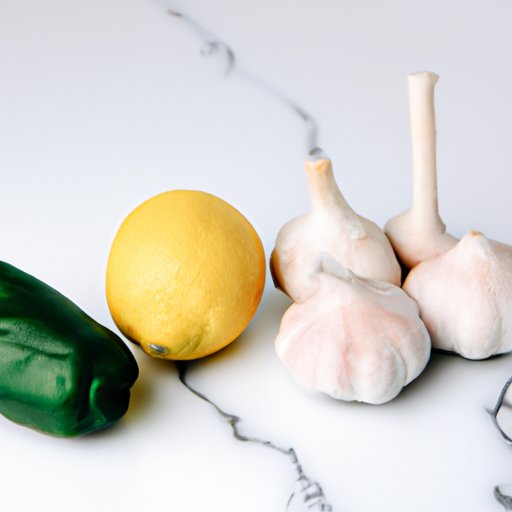Introduction
Sinus pressure is a common discomfort many people experience in their lifetime. It is caused by the inflammation and swelling of the nasal passageway due to a variety of factors. If not managed properly, sinus pressure can lead to severe pain and difficulty breathing. In this article, we will discuss various causes of sinus pressure and provide helpful tips and home remedies to alleviate symptoms.
Common Causes of Sinus Pressure and How to Avoid Them
There are several causes of sinus pressure, including allergies, infections, and anatomical factors. Seasonal allergies caused by pollen, grass, and mold can lead to inflammation of the nose and sinuses. Infections like the common cold, flu, or sinusitis can also cause swelling and pressure inside the nasal cavity. Anatomical factors such as a deviated septum or nasal polyps can cause blockages, preventing proper drainage of mucus and leading to pressure buildup.
Prevention is key to avoiding sinus pressure caused by allergies and infections. Practicing good hygiene like washing your hands frequently can help prevent the spread of germs and viruses. Avoiding allergens like pollen during peak seasons can also help prevent allergic reactions that lead to sinus pressure. For those with anatomical factors, seeking medical advice from an ENT specialist can help diagnose and provide potential treatment options.
Home Remedies for Sinus Pressure
Steam inhalation and nasal irrigation are effective home remedies that can alleviate symptoms of sinus pressure. Steam inhalation involves breathing in warm, moist air to help loosen mucus and reduce inflammation. Nasal irrigation, on the other hand, involves using a saline solution to rinse the nasal cavity, helping to remove excess mucus and irritants. It’s important to note that proper technique should be used to avoid any further irritation or infection.
Other home remedies for sinus pressure include using a humidifier to add moisture to the air and using a saline spray to help hydrate the nasal passage. Drinking plenty of fluids and getting adequate rest can also help the body fight off infections and reduce inflammation.
Foods That Can Relieve Sinus Pressure
Spicy foods like chili peppers and horseradish can help alleviate symptoms by opening up the nasal passageway and allowing for better drainage. Foods high in Vitamin C like oranges and strawberries can also help fight off infections, reducing the duration of sinus pressure symptoms.
Over-the-Counter Medications for Sinus Pressure
Decongestants and antihistamines are commonly used to treat sinus pressure symptoms. Decongestants work by narrowing blood vessels in the nasal passageway, reducing swelling and congestion. Antihistamines, on the other hand, work by blocking histamine released during an allergic reaction that leads to inflammation.
It’s important to note that while these medications can be effective, they can also have side effects like drowsiness or increased blood pressure. It’s important to follow instructions and use caution when taking any over-the-counter medications.
Essential Oils for Sinus Pressure
Essential oils like eucalyptus or peppermint oil can help alleviate symptoms by reducing inflammation and opening up the nasal passageway. These oils can be added to a diffuser or mixed with carrier oils and applied to the skin to inhale its scent. It’s important to use these oils safely and follow proper guidelines to avoid any harm.
Seeking Medical Attention for Sinus Pressure
While home remedies can be effective, there are times when medical attention is necessary to treat sinus pressure symptoms. If symptoms persist or become severe, it’s important to seek medical attention as it may be a sign of a more serious condition that requires antibiotics or other medical treatments. ENT specialists can provide prescriptions for nasal sprays or recommend allergy shots to prevent future outbreaks.
Conclusion
Sinus pressure can be an uncomfortable and painful experience that can impact daily life. With proper understanding of the causes and treatments, it is possible to manage and alleviate symptoms. By practicing good hygiene, seeking medical advice when necessary, and utilizing helpful home remedies, it’s possible to effectively manage sinus pressure symptoms and enjoy a better quality of life.
Remember to take care of yourself by incorporating the tips we’ve discussed in your daily routine. Start with the simple ones like washing your hands more often and trying a home remedy, and seek medical attention when needed.
